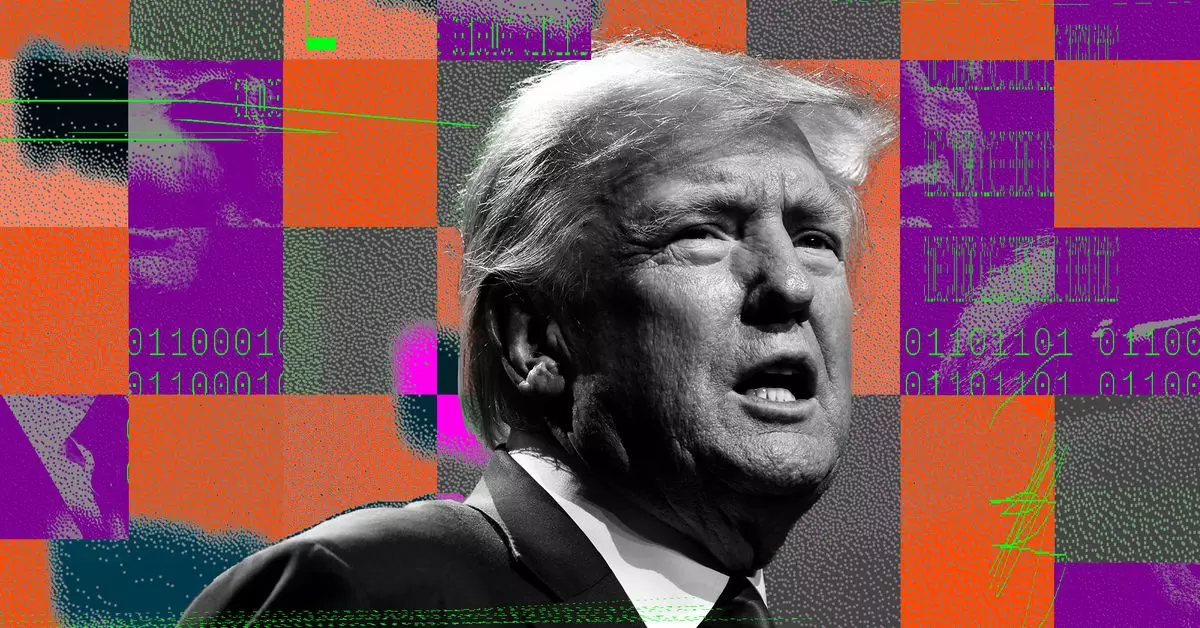The controversy surrounding TikTok has reached new heights, particularly in the context of its potential ban in the United States. With the upcoming political changes marking Donald Trump’s return to prominence, the former president is taking an unusual approach to what has become a vexing issue both domestically and globally: the presumed national security risks tied to foreign ownership of the popular social media platform.
Recently, the Supreme Court has agreed to hear arguments regarding the legality of a congressional bill that seeks to ban TikTok due, ostensibly, to concerns that it poses a national security threat. This law not only aims to restrict the app’s operations in the U.S. but also provides the sitting president with significant discretion to postpone enforcement based on negotiation outcomes. As the political landscape shifts, the Supreme Court’s resolution could set a critical precedent concerning the intersection of technology, free speech, and government authority.
Trump’s impending presidency comes with a unique twist. In an amicus brief submitted to the Supreme Court, he has expressed a keen desire to negotiate a potential deal that could pave the way for TikTok’s continued operation in the United States. He claims that his “consummate deal-making expertise” places him in a favorable position to tackle the issues surrounding TikTok’s connection to its Chinese parent company, ByteDance. This argument showcases Trump’s self-identified prowess as a negotiator and leader, suggesting he believes he is uniquely qualified to protect the interests of American users while balancing geopolitical sensitivities.
The core of Trump’s position raises questions regarding his intentions. While his previous administration vigorously advocated for a ban on TikTok, the changing dynamics of social media usage, particularly during his 2024 election campaign, seem to have influenced his current stance. His claim that he has over 14 million followers on TikTok, along with his financial investment in Truth Social, suggests a deeper appreciation for the platform’s significance as a tool for political engagement and free expression.
Despite Trump’s call for the Supreme Court to consider postponing the enforcement date for the bill—set to take effect just before his inauguration—he has yet to provide any specifics about what his proposed deal might entail. It is widely speculated that such negotiations would require significant concessions from ByteDance, likely compelling the company to divest substantial ownership stakes in TikTok to American entities. However, without clarity on the structural changes to TikTok’s ownership, Trump’s assertions risk being perceived as political rhetoric rather than a concrete plan.
While Trump suggests that a TikTok ban represents a threat not only to its users but also to the principles of free speech and expression, his position is echoed by advocates concerned about government overreach. Citing the recent instance of Brazil’s temporary ban on Elon Musk’s platform X, he articulates an ongoing discourse about the power governments wield in controlling and censoring digital platforms. The fears surrounding these trends underscore the importance of safeguarding spaces for open political dialogue.
However, the political pressure for enforcing a ban remains robust. A coalition, comprising influential senators and representatives, has publicly declared their intent to see the ban on TikTok enforced. This alliance—consisting of figures from both sides of the aisle—represents the entrenched nature of concerns regarding TikTok’s security implications, showcasing how deeply divided opinions are in the political ecosystem.
As this situation continues to evolve, it raises critical questions not only about TikTok’s future in the U.S. but also about broader state control over digital platforms in a connected world. The impending Supreme Court decision will undoubtedly shape both public policy and the digital landscape. With Trump’s unique negotiation strategy on the table, the outcome remains uncertain, illustrating how the interplay between technology, politics, and societal values is as significant as ever. As we move forward, the importance of balancing national security with individual rights and freedom of expression will remain a pivotal discussion point in the realm of technology governance.

